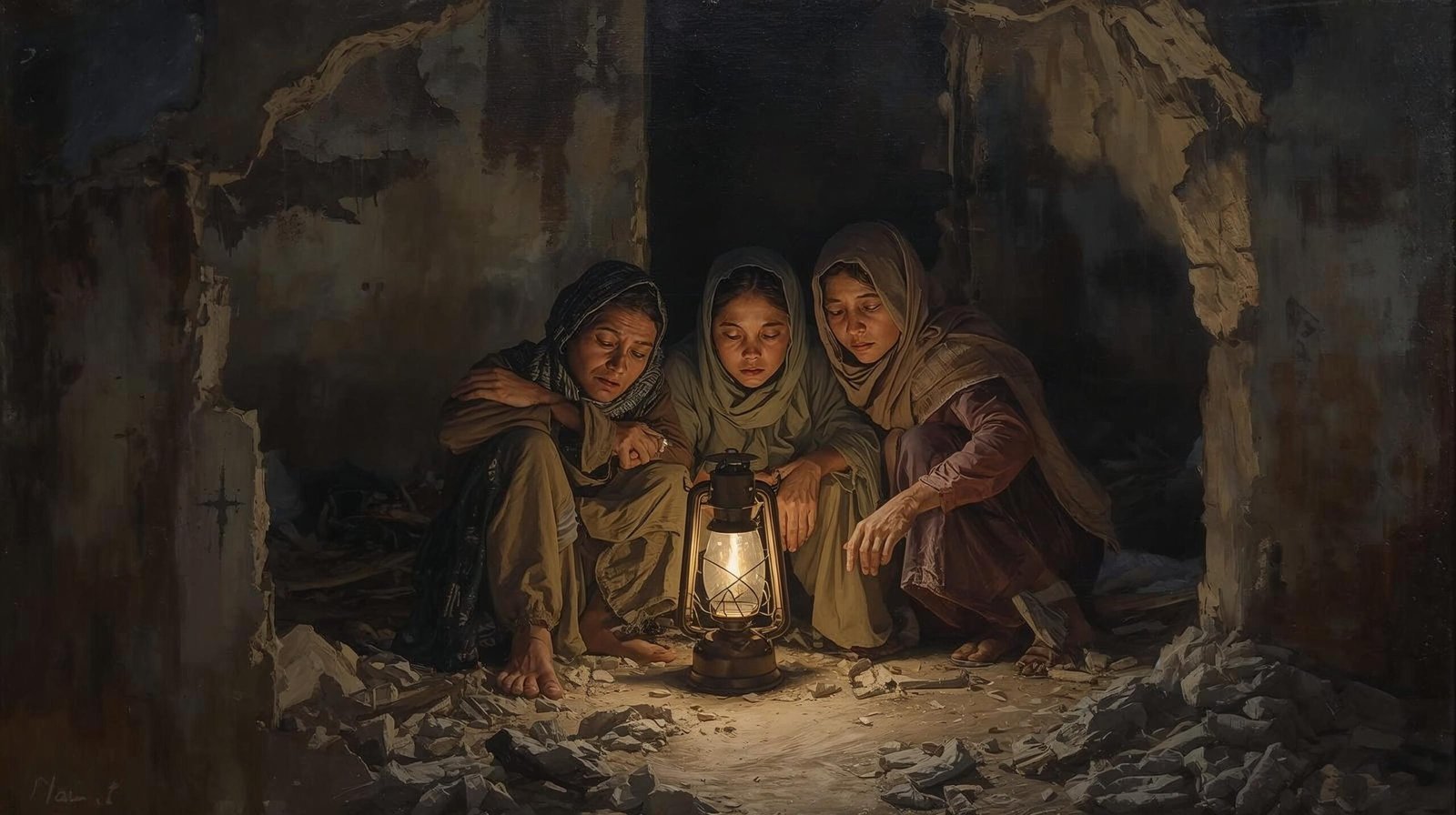The Glass Castle Summary: 11 Shocking Lessons from Jeannette Walls’ Heartbreaking Memoir
Introduction
The Glass Castle Summary captures one of the most profound and unsettling memoirs in modern literature. Written by Jeannette Walls, this powerful autobiography traverses the terrain of poverty, chaos, and redemption with astonishing honesty. It is not merely a retelling of a painful past but a journey of self-acceptance and resilience.
Walls’ writing is poetic yet raw — exposing the paradox of love within dysfunction and the fragility of human dreams. The Glass Castle Summary compels readers to look beyond appearances, urging them to see the quiet strength hidden in suffering.
In this comprehensive analysis, we explore 11 shocking lessons from The Glass Castle, revealing the depths of emotional endurance, broken family dynamics, and the triumph of forgiveness that define Jeannette Walls’ extraordinary story.

1. The Shattered Illusion of the Ideal Family
The first revelation from The Glass Castle Summary lies in its dismantling of the “perfect family” illusion. Jeannette’s parents, Rex and Rose Mary Walls, embody eccentricity and neglect in equal measure. Despite their intelligence and creativity, they often fail their children in the most fundamental ways — denying them stability, food, and safety.
Yet, Walls refrains from bitterness. Through her eyes, readers glimpse the tragic beauty of flawed love — a love that is both destructive and deeply human. The Glass Castle Summary demonstrates that familial dysfunction does not necessarily extinguish affection; it merely reshapes it.
2. Poverty Does Not Define Dignity
A recurring theme in The Glass Castle Summary is poverty’s deceptive nature. Jeannette and her siblings endure hunger, humiliation, and homelessness. Still, they maintain a quiet dignity, refusing to let their circumstances define their worth.
Walls’ narrative illustrates that hardship may erode comfort but not character. The Glass Castle Summary reminds readers that human value is not measured by possessions but by persistence.
3. The Power and Peril of Dreams
Rex Walls’ grand dream — “the glass castle” — is at once a symbol of hope and delusion. He promises his family a magnificent, solar-powered home built entirely from glass. It becomes a metaphor for idealism — brilliant yet fragile.
Throughout The Glass Castle Summary, the castle stands as an emblem of Rex’s potential and failure. It teaches us that dreams, when detached from action, can transform into painful illusions.
4. The Strength of Self-Reliance
One of the most empowering insights from The Glass Castle Summary is the transformation of dependency into self-reliance. Jeannette learns early that her survival depends on her own resolve. Abandoned emotionally and materially, she becomes the caretaker of her siblings.
Her courage to pursue education, independence, and dignity despite adversity underscores a central message: self-reliance is the foundation of true freedom.
5. The Thin Line Between Love and Neglect
Walls portrays her parents not as villains but as deeply flawed dreamers. The Glass Castle Summary blurs the boundary between love and neglect, compelling readers to confront uncomfortable questions: Can a parent love deeply and still fail miserably? Can one forgive without forgetting?
Jeannette’s forgiveness is not naïve; it is born from understanding. She learns to separate love from approval, a distinction that forms the emotional core of The Glass Castle Summary.

6. The Triumph of Education Over Adversity
Education emerges as the great equalizer in The Glass Castle Summary. For Jeannette, learning is not a privilege but a lifeline. Her pursuit of knowledge becomes her rebellion against the chaos of her upbringing.
Walls proves that education has transformative power — it can turn wounds into wisdom and limitations into liberation. This lesson resonates profoundly in the modern era, where self-growth remains the only sustainable escape from despair.
7. The Hidden Grace in Suffering
The Glass Castle Summary suggests that suffering, while excruciating, often births clarity. The Walls children endure humiliation and deprivation, yet their trials cultivate compassion, empathy, and resilience.
Walls’ storytelling reveals that pain, when processed with courage, refines the soul rather than ruins it. Her journey illustrates that endurance can lead to enlightenment — that even in darkness, the human spirit can glow.
8. The Hypocrisy of Society’s Judgment
Through The Glass Castle Summary, Jeannette exposes the hypocrisy of societal judgment. While people pity the Walls children, society itself perpetuates systems that trap families in cycles of poverty.
Walls refuses to romanticize her struggles or to portray herself as a victim. Instead, she holds a mirror to collective indifference. This lesson challenges readers to look beyond surface empathy and engage in meaningful compassion.
9. Forgiveness as Freedom
Perhaps the most poignant theme in The Glass Castle Summary is forgiveness. Jeannette’s path to peace lies not in forgetting her parents’ failures but in understanding their humanity.
Forgiveness becomes a radical act — an emancipation of the heart. By releasing anger, she claims ownership of her story. The Glass Castle Summary thus transforms pain into perspective, teaching that forgiveness is not weakness but wisdom.
10. The Illusion of the American Dream
Walls’ narrative subtly critiques the myth of the American Dream. Through the Glass Castle Summary, readers perceive how systemic inequities and generational trauma undermine the promise of prosperity.
Rex Walls, despite his brilliance, becomes a tragic symbol of wasted potential. His “dream” crumbles because he refuses to confront reality. The glass castle, unbuilt yet ever-present, reminds us that dreams ungrounded in discipline are destined to shatter.

11. Redemption Through Acceptance
The final and perhaps most beautiful lesson in The Glass Castle Summary is redemption. Jeannette does not rewrite her past; she reconciles with it. She learns that wholeness does not come from erasing pain but from embracing it as part of the human condition.
Her eventual reconciliation with her mother — after years of distance — closes the circle of her healing. It is a quiet, understated triumph that reaffirms the memoir’s enduring message: acceptance is the highest form of strength.
A Deeper Exploration of Jeannette Walls’ Emotional Landscape
Jeannette Walls’ journey is far more than a memoir of hardship; it is an odyssey of self-discovery and reconciliation. Her courage to expose the raw edges of her upbringing reflects a profound maturity seldom seen in autobiographical writing. The narrative’s emotional cadence transitions from innocence to awareness, from confusion to clarity, and ultimately from resentment to forgiveness.
Walls’ recollections are meticulously layered — not as accusations, but as meditations on human frailty. Her restraint from moralizing or dramatizing her parents’ flaws adds to the memoir’s authenticity. Readers are not directed to hate or pity but rather to understand. This neutrality transforms personal suffering into universal reflection. One feels the ache of hunger, the sting of humiliation, and the ache of yearning for parental approval — emotions that transcend class and culture.
In the silence of her storytelling lies an emotional depth that makes every page glisten with sincerity. Her refusal to sensationalize her past reinforces a quiet dignity that elevates her narrative from tragedy to transcendence.
The Psychological Dimensions of Survival
Walls’ endurance cannot be examined without acknowledging its psychological dimension. Children exposed to chronic instability often develop survival mechanisms that outlast their circumstances. Jeannette, in her formative years, learns to suppress fear and disappointment, replacing them with focus and resolve.
Psychologists might describe her response as adaptive resilience — the ability to transform adversity into growth. Yet, Walls’ resilience is not the denial of pain; it is the integration of it. Every trial becomes a fragment of her identity, shaping her capacity for empathy and wisdom.
Her siblings mirror varying psychological responses to the same environment: Lori retreats into art, Brian turns to practicality and self-reliance, while Maureen seeks external validation and ultimately succumbs to despair. Together, their trajectories form a study of how trauma manifests differently across individuals.
Jeannette’s later success as a journalist demonstrates not a flight from her past but a reclamation of it. By narrating her history, she breaks the silence that often imprisons survivors of neglect. Her candor invites others to confront their own hidden wounds without shame.
The Literary Craftsmanship Behind the Memoir
Beyond its emotional force, Walls’ work stands as a model of literary precision. Her prose is spare yet luminous, capturing the essence of moments without ornamentation. The simplicity of her language allows readers to feel the weight of each experience without distraction.
Her structure, too, deserves praise. The narrative unfolds in vignettes — concise, vivid recollections that resemble snapshots of memory. This fragmented style mirrors the chaos of her upbringing, creating a rhythm of disruption and pause. Each episode carries symbolic resonance: the desert town, the moving van, the broken-down car, the empty fridge — all serving as metaphors for impermanence and fragility.
Walls also demonstrates a masterful control of tone. She balances despair with humor, anger with affection. This duality prevents the narrative from descending into self-pity. Instead, it becomes an act of gratitude — gratitude for endurance, for insight, and for the complicated love that binds even the most fractured families.
The Role of Setting as a Silent Character
The backdrop of the memoir — from the arid deserts of the Southwest to the decaying mining towns of West Virginia — functions as more than scenery. It acts as a silent character, shaping and reflecting the family’s inner turmoil.
The desert, vast and merciless, mirrors the emotional desolation of the Walls family yet also embodies a sense of freedom. The openness of the landscape contrasts with the claustrophobia of urban poverty. Later, the move to Welch, West Virginia, introduces a new kind of imprisonment — one of decay, prejudice, and generational despair.
In these shifting settings, geography becomes psychology. The dust, the heat, the endless horizon — all are metaphors for longing and restlessness. The physical displacement of the family mirrors the emotional dislocation that defines their relationships.
Walls’ ability to fuse external and internal landscapes is one of her greatest artistic triumphs. Readers feel the texture of the environment — the grit of sand, the chill of broken windows, the glare of sunlight on empty plains. This sensory realism grounds her emotional truth.
Family as Paradox: Love Entwined with Pain
Perhaps the most haunting aspect of the memoir is its depiction of love that both nurtures and wounds. Rex Walls, despite his brilliance, is consumed by addiction. His charm and wit often mask his recklessness. He dreams grandly, speaks eloquently, and occasionally acts heroically — yet he is incapable of sustaining stability.
Rose Mary, his wife, floats between artistic passion and maternal detachment. Her refusal to conform to convention borders on irresponsibility, yet one senses that she too is a prisoner of her illusions.
The children’s love for their parents, therefore, is both pure and painful. It is a love born not of admiration but of necessity. They cling to affection because abandonment would be too unbearable. This emotional complexity makes the narrative profoundly human. It forces readers to question their definitions of love, morality, and duty.
Walls’ later understanding of her parents’ choices — viewing them as products of their own wounded histories — elevates her forgiveness from sentimentality to philosophy. She learns that compassion is not endorsement but comprehension.
The Universality of Human Struggle
While the memoir recounts one family’s peculiar odyssey, its implications are universal. Every reader, in some measure, grapples with the tension between dreams and disappointments, between love and loss. Walls’ story becomes a mirror through which one can examine personal endurance.
Her experiences remind us that suffering is not an exception but a condition of existence. What distinguishes individuals is how they interpret and transform it. In confronting her painful past, she demonstrates that healing begins not with forgetting but with understanding.
Her ascent from poverty to literary acclaim represents the triumph of consciousness — the victory of awareness over circumstance. Through honesty, she converts private grief into collective wisdom.

Moral and Philosophical Undercurrents
At its heart, Walls’ narrative is a meditation on freedom — both its gift and its peril. Her parents, particularly Rex, prize freedom above all else, rejecting the constraints of employment, authority, and conformity. Yet this pursuit of liberty often devolves into neglect and chaos.
The question arises: what is freedom without responsibility? Walls’ life offers an implicit answer — that genuine freedom is not the absence of limits but the mastery of them. True liberation lies in self-discipline, in the ability to shape one’s destiny rather than drift within it.
Another moral thread woven through the memoir is gratitude. Walls’ ability to find beauty amid squalor reflects a rare kind of awareness. She teaches that even within brokenness, moments of grace persist — a night under the stars, a story told by firelight, a fleeting gesture of tenderness from a flawed parent.
Such moments affirm that meaning is not bestowed by circumstance but created by perception.
Reflections on Modern Relevance
In an age marked by material abundance and emotional disconnection, Walls’ story resonates with startling relevance. Her childhood, devoid of luxury yet rich in lessons, contrasts sharply with today’s culture of excess. The memoir invites contemporary readers to re-examine the true nature of fulfillment.
Walls’ narrative dismantles the notion that comfort guarantees happiness. Instead, it underscores the enduring truth that character is forged not in ease but in endurance. Her journey becomes an ethical reminder — that the pursuit of authenticity often demands sacrifice, and that integrity cannot be purchased.
Moreover, her story highlights the importance of dialogue about mental health, addiction, and family dysfunction. By confronting taboo subjects with honesty, she fosters empathy rather than judgment. This contribution, perhaps more than her literary success, defines her legacy.
Symbolism and Imagery in The Glass Castle Summary
Walls’ memoir is rich with symbolism. The titular “glass castle” represents both the beauty of aspiration and the brittleness of illusion. Fire recurs as a motif — from Jeannette’s childhood burn to her father’s destructive drinking — symbolizing chaos and renewal.
The desert landscapes, the frequent relocations, and the dilapidated homes become metaphors for the transient nature of hope. The Glass Castle Summary thereby transcends mere storytelling; it becomes an allegory of the human condition.
Character Analysis in The Glass Castle Summary
-
Jeannette Walls: The embodiment of endurance and intellect, Jeannette emerges as a symbol of hope amid despair.
-
Rex Walls: A paradoxical father — brilliant, loving, yet self-destructive. He represents the tragedy of unrealized potential.
-
Rose Mary Walls: A free spirit whose artistic temperament often borders on irresponsibility.
-
Lori, Brian, and Maureen: Each sibling mirrors a different response to adversity — from quiet defiance to disillusionment.
Through these vivid portrayals, The Glass Castle Summary paints a portrait of survival and fractured love that lingers long after the final page.
Writing Style and Tone
Jeannette Walls’ prose is elegant, restrained, and emotionally precise. Her refusal to indulge in self-pity elevates her narrative from confession to literature. The Glass Castle Summary reveals how understatement can amplify impact.
Walls’ tone balances vulnerability with strength, ensuring her story is not one of tragedy but transcendence.
Impact and Legacy of The Glass Castle Summary
Since its publication, The Glass Castle has resonated with millions worldwide. It continues to be studied in schools and discussed in therapy groups. The Glass Castle Summary holds enduring relevance because it mirrors universal truths: that love can wound, dreams can betray, and forgiveness can heal.
Its film adaptation further amplified its cultural reach, yet the book remains the more powerful medium — an unfiltered reflection of the human will to rise above despair.

Major Takeaways from The Glass Castle Summary
-
Resilience is not inherited; it is built through struggle.
-
Dreams are meaningful only when anchored in reality.
-
Forgiveness liberates more than revenge ever can.
-
Education is the most potent weapon against poverty.
-
Acceptance transforms pain into peace.
The Glass Castle Summary reminds us that we cannot choose our origins, but we can choose our endings.
Conclusion
In conclusion, The Glass Castle Summary stands as a testament to human resilience and the transformative power of forgiveness. Jeannette Walls’ memoir exposes the fragility of dreams, the strength of survival, and the necessity of compassion — both for others and oneself.
It is a narrative that transcends autobiography to become a universal lesson on endurance and grace. Every reader who encounters The Glass Castle emerges altered — reminded that light can emerge even from the ruins of despair.
For those who seek meaning, healing, and courage, The Glass Castle Summary offers not just a reflection of pain but a revelation of hope.
Visit shubhanshuinsights.com for more in-depth book analyses and timeless reflections on human experience.
Frequently Asked Questions (FAQs)
1. What is The Glass Castle about?
The memoir recounts Jeannette Walls’ unconventional childhood marked by poverty, neglect, and resilience. It explores how she transformed her hardships into strength and forgiveness.
2. What is the main message of The Glass Castle Summary?
The main message centers on the power of perseverance, education, and forgiveness amid dysfunction and adversity.
3. Why is the book called The Glass Castle?
The “glass castle” symbolizes Rex Walls’ dream — a metaphor for idealism, fragility, and the duality of hope and failure.
4. Is The Glass Castle a true story?
Yes. It is an autobiographical account based on Jeannette Walls’ real experiences growing up in an unstable family.
5. What can readers learn from The Glass Castle Summary?
Readers learn that adversity can be a catalyst for transformation, and forgiveness can liberate the soul from the weight of pain.
© 2025 shubhanshuinsights.com — Illuminating books that transform lives